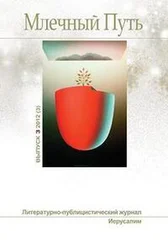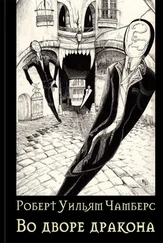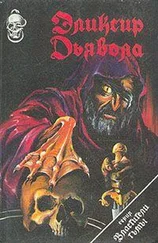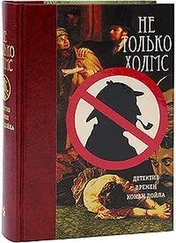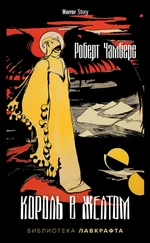Роберт Чамберс - Cardigan
Здесь есть возможность читать онлайн «Роберт Чамберс - Cardigan» весь текст электронной книги совершенно бесплатно (целиком полную версию без сокращений). В некоторых случаях можно слушать аудио, скачать через торрент в формате fb2 и присутствует краткое содержание. Год выпуска: 2014, Издательство: epubBooks Classics, Жанр: Историческая проза, на английском языке. Описание произведения, (предисловие) а так же отзывы посетителей доступны на портале библиотеки ЛибКат.
- Название:Cardigan
- Автор:
- Издательство:epubBooks Classics
- Жанр:
- Год:2014
- ISBN:нет данных
- Рейтинг книги:3 / 5. Голосов: 1
-
Избранное:Добавить в избранное
- Отзывы:
-
Ваша оценка:
- 60
- 1
- 2
- 3
- 4
- 5
Cardigan: краткое содержание, описание и аннотация
Предлагаем к чтению аннотацию, описание, краткое содержание или предисловие (зависит от того, что написал сам автор книги «Cardigan»). Если вы не нашли необходимую информацию о книге — напишите в комментариях, мы постараемся отыскать её.
Cardigan — читать онлайн бесплатно полную книгу (весь текст) целиком
Ниже представлен текст книги, разбитый по страницам. Система сохранения места последней прочитанной страницы, позволяет с удобством читать онлайн бесплатно книгу «Cardigan», без необходимости каждый раз заново искать на чём Вы остановились. Поставьте закладку, и сможете в любой момент перейти на страницу, на которой закончили чтение.
Интервал:
Закладка:
We now entered the slashings of the forest which is called Fonda's Bush, "bush" meaning land not yet cleared of woods. The sweet, moist shadow of the forest cooled me; I made Warlock stop, for I love to listen and linger in a woodland's quiet.
Here the field–birds which had sung everywhere by the roadside were silent, as they always are on the borders of deep forests. Slow hawks sailed along the edge of the woods; out in the clearing a few finches twittered timidly in the sunshine, but here among the hushed ranks of giant trees nothing stirred save green leaves.
But the solitude of forest depths is no solitude to those who know when and where to watch and listen. Faint sounds came to savant ears: the velvet rustle of a snake brushing its belly over soft mosses; the padded patter of the fox–hare; the husky quhit! quhit! of that ashy partridge whose eye is surmounted by a scarlet patch, and whose flesh is bitter as hemlock. Solitude! Nay, for the quick furry creatures that haunt water–ways live here, slipping among bowlders, creeping through crevices; here a mink with eyes like jet beads; here a whiskered otter peering from a cleft; now a musk–rat squatting to wash his face; now a red martin thrashing about in the thick tree–top like a mammoth squirrel at frolic.
If this be solitude, with the stream softly talking in that silly babble which is a language, too; if this be solitude, with the shy deer staring and the tiny wood–mouse in the windfall scraping busily; if this be solitude, then imprison me here, and not in the cities, where solitude is in men's hearts!
Five miles still lay before us over the moist, springy forest road, an excellent and carefully constructed thoroughfare which had been begun by Sir William and designed for a short and direct route to those healing springs of Saratoga which he loved, twenty–eight miles northeast of us. But this route had never been continued east of Fonda's Bush, partly because the winding Kennyetto interfered too often, demanding to be bridged a dozen times in a mile, partly because an easier though longer route had been surveyed by the engineer officers from Albany, and was already roughly marked as far as the Diamond Hill, from which, in clear weather, the Saratoga lake may be seen.
The road we travelled, therefore, came to an abrupt end on the banks of the Kennyetto; and here, in a sunny clearing which was a sugar–bush lately in use, the wagon and its passengers halted, and I dismounted, flinging my bridle to one of the soldiers.
"Souse the stone jugs in the stream!" called out Sir William to young Bareshanks, who came bumping up with his bottles a–knocking and his hat crammed on his ears.
Peter and Esk wriggled out of the straw, fighting over a red and blue bob–float, and fell with a thump upon the moss, locked in conflict. Whereupon Sir William fetched them a clip with his ivory cane across their buttocks, which brought them up snivelling, but reconciled.
Meanwhile Mr. Duncan had gone to the bank of the stream with six sharp pegs, all numbered; and presently Sir William joined him, where they consulted seriously concerning the proper ground, and took snuff and hummed and hawed with much wagging of heads and many eye–squints at the sky and water.
At last, the question being settled, Mr. Duncan set the six pegs ten yards apart and pushed them noiselessly down into the bank, while Sir William removed his hat and placed in the crown six bits of birch–bark with numbers written on each.
"Now, then, young wild–cats," he said, frowning at Esk and Peter, "and you, Felicity, you, too, Mr. Duncan, and Michael, also, come and draw lots for pegs. Zounds! Peter! Ladies first, sir! Now, Felicity!"
Silver Heels placed one hand over her eyes and groped in the hat until her fingers clutched a square of bark. Then she drew it out.
"Number six!" she said, shyly.
"Last peg to the left," announced Sir William. "Who next? Draw, Mr. Duncan!"
"Me! Me!" shouted Peter and Esk, charging at the hat and tearing their numbers from it.
Then Mr. Duncan drew, and then I drew number five.
"Get ready!" commanded Sir William, fumbling with his fish–rod. "Michael, take care of Felicity!"
Now the rules for a peg–down fishing match are few and simple. Each contestant must fish from the position which his peg indicates, and he must not leave his peg to fish elsewhere until the match is ended. Furthermore, he must fish courteously and with due regard for his neighbour's rights, employing no unfair means to attract fish to his own bait or to drive them from his neighbour's. The contestant securing the largest number of fish is the winner; he who bags the largest single fish is adjudged worthy of a second prize; he who secures the choicest individual fish receives a crown of young oak leaves.
At the words, "Take your stations!" we trooped to our pegs. Silver Heels was on the extreme left, I next, then Sir William, then Mr. Duncan, then Peter, and, last of all, Esk.
"Fish!" cried Sir William, and swung his rod from the wrist, sending a green and gray and scarlet feather–fly out into the water.
Silver Heels held her hook out to me and I garnished it with a bit of eel's skin and red flannel. My own line I baited with angle–worm, and together we cast out into the slow, deep current.
Farther along I heard Esk and Peter cast out with some heedless splashing, which was the occasion of mutual recrimination until Sir William silenced them.
Yet almost immediately fat Peter caught a fish, which is like all Indians. However, it was but a spiny sun–fish with blue and scarlet and yellow gills. Still it made Peter's score one.
"Does that count?" asked Silver Heels, turning up her nose. "See! Peter hath another one—a sun–fish, too! Pooh! Anybody can catch sun–fish."
"Better catch 'em then," said Sir William, laughing, and drawing his fly over the water to recover it for another cast.
Splash!—and Peter had a third sun–fish; and in another moment Esk jerked a fourth from the water, secured his prize with a scowl at Peter, and hurriedly rebaited, muttering and breathing thickly.
Then Mr. Duncan's yellow float bobbed under, once, twice, then bobbed so fast that the water dimpled all around and the little rings, spreading, succeeded each other so quickly that the wavelets covered the yellow float.
"A barbel–pout," quoth Mr. Duncan, coolly, and sure enough up came the bluish–black fish and flapped and squeaked, now on its white belly, now on its back, grinning with its gummy, whiskered maw agape and its three dagger fins ready to stab and poison him who rashly grasped it.
"Silver Heels," said I, politely; "you are having a nibble."
"Oh, so I am!" she cried, and drew a lovely blue and silver frost–fish to the surface, only to lose it by over–haste, and cry out in her vexation.
I explained to her how to strike the hook before pulling in, and she thanked me very modestly. There was a new and humble tone in her voice, delicate and grateful flattery to me, due, as I knew perfectly well, to my uniform. Nor did the tribute savour of any after–sting of jealousy or resentment for my new honours.
She recognized that I had climbed high in a single day, leaving the rounds of childhood behind forever; and she knew, too, which I did not, that she also was climbing the ladder very swiftly, a little behind me now, yet confident, and meaning to rejoin and pass me ere I dreamed of such a thing.
About this time Sir William hooked and landed a great pink and white Mohawk chub, which had risen silently from a black pool and had sucked in his feather–fly.
"Tush!" said Sir William. "I'll not count that!" And with a slack and a snip! he unhooked the fish, which at once slowly sank back into the black channel. Whereupon Sir William smoothed out his fly, and took snuff, singing merrily:
Читать дальшеИнтервал:
Закладка:
Похожие книги на «Cardigan»
Представляем Вашему вниманию похожие книги на «Cardigan» списком для выбора. Мы отобрали схожую по названию и смыслу литературу в надежде предоставить читателям больше вариантов отыскать новые, интересные, ещё непрочитанные произведения.
Обсуждение, отзывы о книге «Cardigan» и просто собственные мнения читателей. Оставьте ваши комментарии, напишите, что Вы думаете о произведении, его смысле или главных героях. Укажите что конкретно понравилось, а что нет, и почему Вы так считаете.

